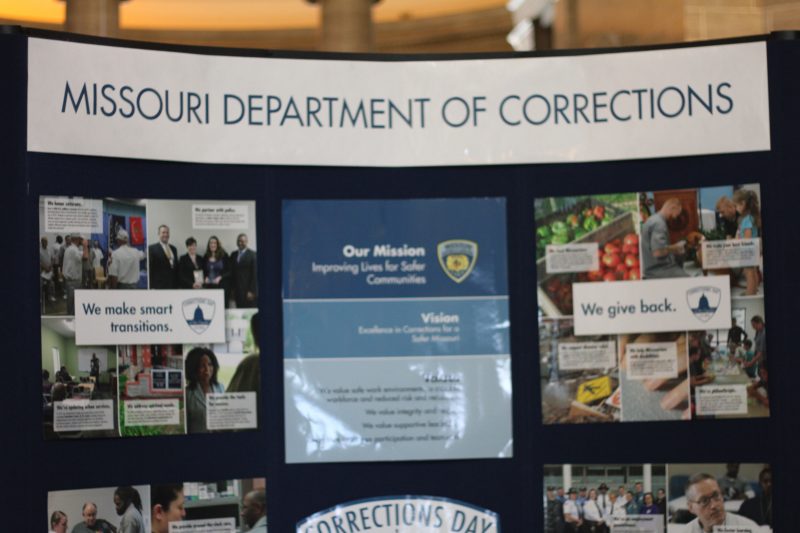JEFFERSON CITY, Mo. — The Department of Corrections touted partnerships, programs, and volunteer effects operating in Missouri’s prisons.
Whether it be healthcare, vocational skills, education, or puppies, the common goal was reducing recidivism, or re-incarceration, rates.
Nearly 20,000 inmates are released from Missouri prisons every year. In 2017, Corrections officials supervised 58,000 Missourians on probation or parole. The average rate of recidivism is 60 percent.
One of the most feel-good programs is probably Puppies for Parole, where offenders train rescued canines.
“There are a lot of benefits to the program,” John Melzer, who volunteers with the program, said. It reduces the number of dogs euthanized, teaches offenders responsibility, boosts staff and offender morale, promotes mental health, provides trained dogs to citizens, and provides offenders with an incentive for good behavior.
Puppies for Parole is a partnership between the Department of Corrections, animal shelters, and animal rescue groups. The program is operating in 19 of Missouri’s 21 prisons.
Offender trainers are enrolled in an apprenticeship program through the U.S. Department of Labor. Through formal training, individual study, and on the job training, offenders earn a certificate in animal handling.
Education in Missouri’s prisons was one of the most highlighted programs of the day. For offenders who earn an Associate’s degree while in prison the recidivism rate is 13.7 percent. For those that earn a Bachelor’s degree while in prison, the recidivism rate is 5.6 percent.
In 2017, inmates in Missouri prisons earned more than 1,550 professional certificates. Offenders learn skills in welding, computer technology, trades, cosmetology, plumbing, truck driving, gardening, culinary arts, and more.
On display at the Capitol Day were knitted hats, weighted blankets and vests, embroidery, and paintings all created by inmates in the Restorative Justice program. The items the offenders make are often donated to benefit organizations.
“It allows offenders a chance to give back,” Institutional Restorative Justice Coordinator Pam Restemayer said.
Healthy Transition is a unique program that provides ex-offenders with free medication for 90 after being released from prison. The program, a partnership between Rx Outreach, Corizon Health, and Department of Corrections, is designed to designed to fill the “medication gap” that occurs between when an offender is released from prison and the time that they are able to get a new prescription order.
“We are trying to reduce recidivism,” a representative of the program said. There is a study being conducted to see if the program is effective in its goal.
Healthy Transitions only launched statewide recently but was operating in St. Louis since April 2016. In 2016, Healthy Transitions provided more than 1,200 free prescriptions to more than 470 people leaving correctional facilities. Almost half of the people served received mental health medication.

Alisha Shurr was a reporter for The Missouri Times and The Missouri Times Magazine. She joined The Missouri Times in January 2018 after working as a copy editor for her hometown newspaper in Southern Oregon. Alisha is a graduate of Kansas State University.


























